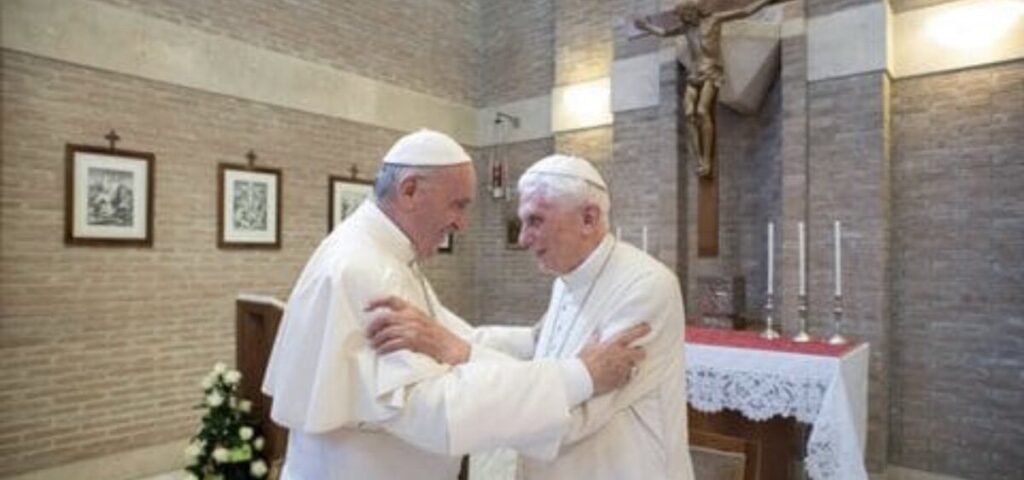
[Chico Harlan and Stephanie Pitrelli | The Washington Post] ROME — Breaking years of silence on major church affairs, Pope Benedict XVI has written a lengthy letter devoted to clerical sex abuse in which he attributes the crisis to a breakdown of church and societal moral teaching and says he felt compelled to assist “in this difficult hour.”
The 6,000-word letter, published in tandem Thursday by a Catholic outlet and an Italian newspaper, decries the 1960s sexual revolution, laments the secularization of the West and describes seminaries filled with “homosexual cliques.”
“Why did pedophilia reach such proportions?” Benedict wrote, according to the Catholic News Agency, which published the full text in English. “Ultimately, the reason is the absence of God.”
Benedict’s personal secretary, Archbishop Georg Gänswein, confirmed the authenticity of the letter in an email.
“The text is authentic,” Gänswein said.
Since abdicating the papacy six years ago, Benedict — living in a monastery inside the Vatican City walls — had remained nearly silent on issues facing the Roman Catholic Church, in part to yield full authority to his successor, Pope Francis. The new letter, then, marks an unprecedented moment in the modern church: a significant pronouncement from an ex-pope on the most central problem facing the church.
“Since I myself had served in a position of responsibility as shepherd of the Church at the time of the public outbreak of the crisis, and during the run-up to it, I had to ask myself — even though, as emeritus, I am no longer directly responsible — what I could contribute to a new beginning,” Benedict said.
In the newly published letter, Benedict wrote that he contacted both Francis and the Vatican’s secretary of state before proceeding. And the pope emeritus finished his essay by thanking Francis for his work to show “the light of God.” But Benedict’s remarks on the topic differ sharply from those of Francis, who has emphasized the corrupted power of clergy and has acknowledged systemic problems that result in coverup. Those themes also prevailed during a February sexual abuse summit at the Vatican that involved leading bishops from around the world.
Benedict, instead, took a far more theological and historical approach and said little about concrete reforms that could better safeguard young people in the church. Benedict devoted the first third of his letter to changes in society and inside the church beginning in the 1960s that gave rise to an “all-out sexual freedom.” He wrote that Catholic moral theology “suffered a collapse” of its own during a period of major reforms.
One outcome of the sexual revolution, Benedict wrote, is that “pedophilia was then also diagnosed as allowed and appropriate.”
Continue reading here.
[Editor’s Note: This article was written by Chico Harlan and Stephanie Pitrelli and originally published at The Washington Post. Title changed by P&P.]











